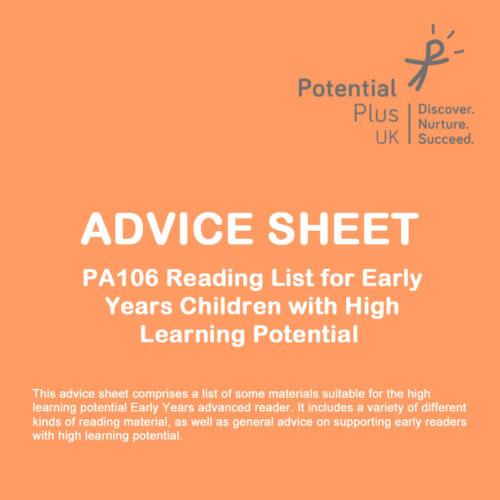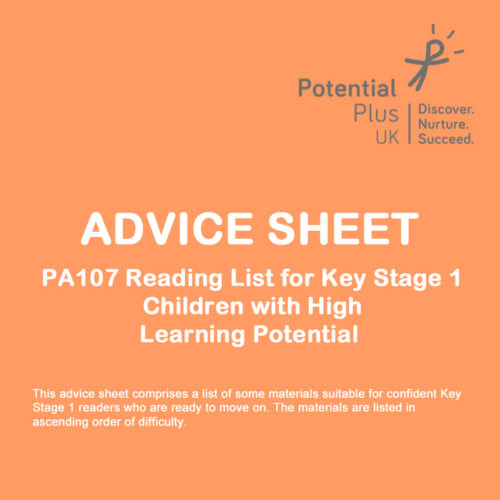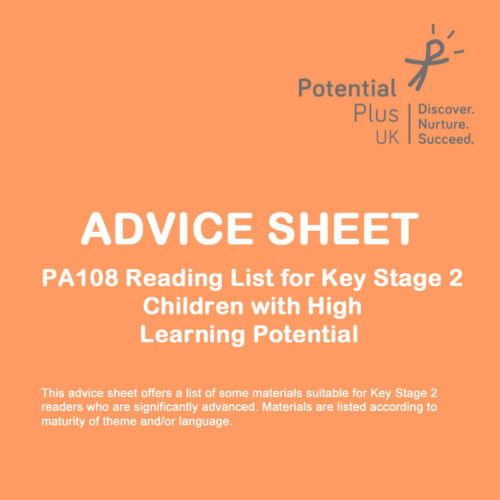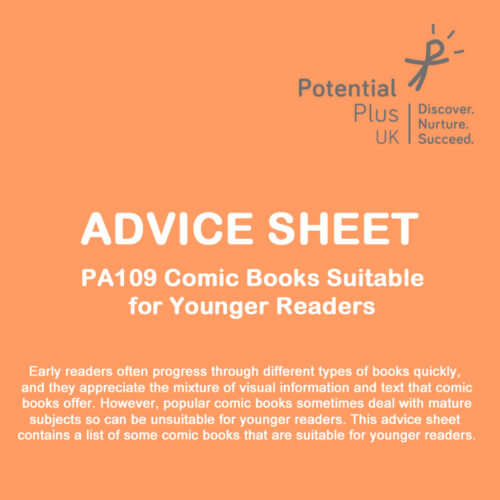Free Advice Sheets
A range of advice sheets free to members and non-members, for parents and carers from Potential Plus UK, on many different topics relating to children with high learning potential (also known as gifted, more able, high ability, bright).
-
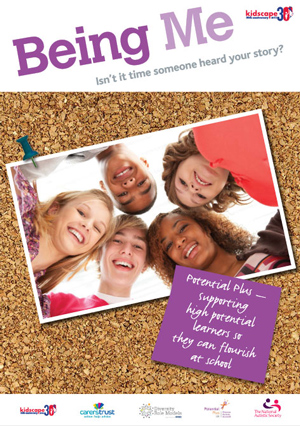 Gifted children come in all shapes and sizes, and from all social and cultural backgrounds. More than anything they want to fit in with their peers and to stop being singled out as the clever one or the geek or the oddball or the one who doesn’t make friends easily. This free to download Being Me booklet was published by Kidscape in collaboration with Potential Plus UK and has been written to help support children with high learning potential to flourish in school. It highlights the misunderstandings and bullying that can take place for children who are different because of their ability.
Gifted children come in all shapes and sizes, and from all social and cultural backgrounds. More than anything they want to fit in with their peers and to stop being singled out as the clever one or the geek or the oddball or the one who doesn’t make friends easily. This free to download Being Me booklet was published by Kidscape in collaboration with Potential Plus UK and has been written to help support children with high learning potential to flourish in school. It highlights the misunderstandings and bullying that can take place for children who are different because of their ability. -
 In the UK, the term Dual or Multiple Exceptionality (DME) is used to describe those who have one or more special educational need or disability and also have high ability (which Potential Plus UK calls High Learning Potential or HLP). Potential Plus UK has produced this fact sheet to inform, support and advise teachers, professionals and parents/carers of DME children. Issues related to educating, parenting and supporting a child with DME are covered in this fact sheet. Treatments for specific special educational needs are covered in other Potential Plus UK Fact Sheets relating to particular diagnoses.
In the UK, the term Dual or Multiple Exceptionality (DME) is used to describe those who have one or more special educational need or disability and also have high ability (which Potential Plus UK calls High Learning Potential or HLP). Potential Plus UK has produced this fact sheet to inform, support and advise teachers, professionals and parents/carers of DME children. Issues related to educating, parenting and supporting a child with DME are covered in this fact sheet. Treatments for specific special educational needs are covered in other Potential Plus UK Fact Sheets relating to particular diagnoses. -
 This fact sheet is for parents, carers, teachers and professionals. It offers information on how ADHD (Attention Deficit Hyperactivity Disorder) may present in children with high learning potential and may be helpful for those seeking strategies to support a neurodivergent child’s strengths and needs at home and at school.
This fact sheet is for parents, carers, teachers and professionals. It offers information on how ADHD (Attention Deficit Hyperactivity Disorder) may present in children with high learning potential and may be helpful for those seeking strategies to support a neurodivergent child’s strengths and needs at home and at school. -
 Sensory processing difficulties affect how a child interprets, organises and responds to the information they receive through their eight senses. In more severe cases, such difficulties can significantly affect participation in activities of daily life. There is no single set of symptoms. Sensory processing difficulties is used as an umbrella term for a variety of neurological, sensory-based disorders including dyspraxia. A common characteristic of children with high learning potential (HLP) is a heightened sensory perceptiveness.This fact sheet discusses the symptoms of sensory processing difficulties and outlines pathways to diagnosis and support for parents, carers or teachers of children with sensory processing difficulties and high learning potential.
Sensory processing difficulties affect how a child interprets, organises and responds to the information they receive through their eight senses. In more severe cases, such difficulties can significantly affect participation in activities of daily life. There is no single set of symptoms. Sensory processing difficulties is used as an umbrella term for a variety of neurological, sensory-based disorders including dyspraxia. A common characteristic of children with high learning potential (HLP) is a heightened sensory perceptiveness.This fact sheet discusses the symptoms of sensory processing difficulties and outlines pathways to diagnosis and support for parents, carers or teachers of children with sensory processing difficulties and high learning potential. -
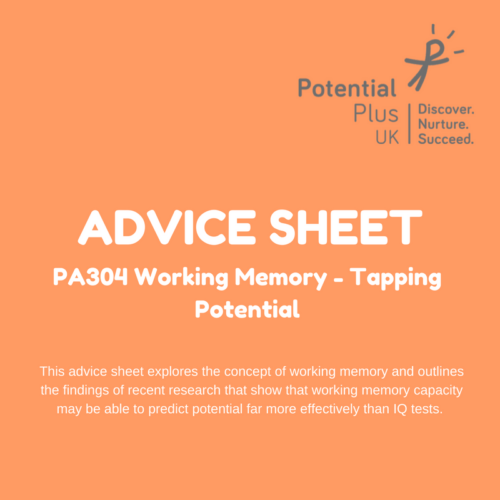 This advice sheet provides an overview of how High Learning Potential (HLP) is supported within the UK education system. It highlights variations in policy and provision across England, Wales, Scotland, and Northern Ireland and covers definitions, government policies, school provisions, existing challenges, and the legal framework. This advice sheet is aimed at parents, carers, teachers and other professionals supporting HLP learners.
This advice sheet provides an overview of how High Learning Potential (HLP) is supported within the UK education system. It highlights variations in policy and provision across England, Wales, Scotland, and Northern Ireland and covers definitions, government policies, school provisions, existing challenges, and the legal framework. This advice sheet is aimed at parents, carers, teachers and other professionals supporting HLP learners.

